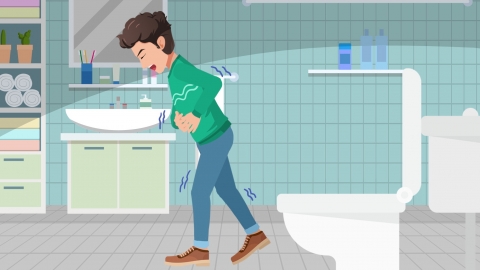What are the symptoms of internal hemorrhoids?
Internal hemorrhoids may present symptoms such as rectal bleeding, prolapse of hemorrhoidal tissue, perianal itching, a sensation of heaviness or fullness in the anus, and discomfort during defecation. The severity of symptoms is related to the size of the hemorrhoidal tissue and disease progression, so clinical evaluation should be based on specific manifestations. If heavy bleeding occurs or prolapsed tissue cannot be reduced, prompt medical attention is recommended.
1. Rectal bleeding: Bright red blood appears during or after bowel movements, often seen as dripping blood, spurting, or blood-streaked toilet paper. The blood is typically鲜red and does not mix with stool, usually caused by rupture of blood vessels due to friction between feces and the mucosa covering the hemorrhoid.
2. Hemorrhoidal prolapse: In early stages, tissue protrudes during defecation but spontaneously reduces afterward. As the condition progresses, the prolapsed tissue becomes larger and must be manually pushed back; in severe cases, it may protrude even during walking or coughing, significantly affecting daily activities.

3. Perianal itching: Prolapsed hemorrhoids increase mucus secretion, which irritates the perianal skin. Moisture from retained secretions can lead to itching. Excessive scratching may further damage the skin.
4. Anal heaviness or fullness: When internal hemorrhoids become congested, swollen, or infected, patients may experience a persistent sensation of pressure or dull pain in the anal area, especially noticeable after bowel movements or prolonged sitting or standing. Some individuals may also feel a sense of heaviness in the lower abdomen.
5. Discomfort during defecation: The presence of hemorrhoidal tissue within the anal canal or irritation of the rectal mucosa may cause a feeling of incomplete evacuation, straining during bowel movements, or mild pain, disrupting normal defecation patterns.
To manage symptoms and reduce risk of worsening, maintain a light diet rich in dietary fiber, and avoid spicy or irritating foods. Establish regular bowel habits and avoid prolonged straining or sitting on the toilet. Keep the perianal area clean and dry, and perform moderate anal sphincter contraction exercises regularly.






